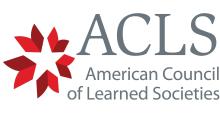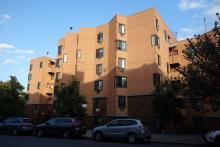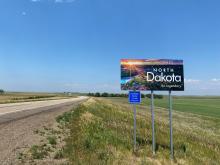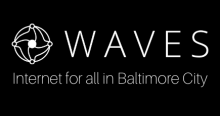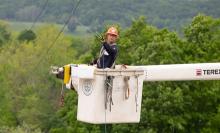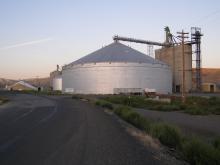Fast, affordable Internet access for all.
News
Wadsworth, Ohio Converting City-Owned Broadband Network From Coaxial To Fiber
Wadsworth, Ohio officials say they’re making steady progress on the expansion of a city-owned broadband network that’s extending affordable fiber connectivity to the city’s nearly 25,000 residents. Originally a coaxial-based network, the city now says it’s in the process of delivering Wi-Fi to many city residents while they go block-by-block removing older coaxial cable and upgrading residents to more future-proof fiber optic connectivity.
Sherwood, Oregon Ferments ‘Future-Proof’ Fiber To Preserve and Expand Municipal Network
Sherwood Broadband recently secured a $9 million grant from the Oregon Broadband Office Broadband Deployment Program to continue expanding Sherwood’s municipally-owned network. The grant award is part of $132 million in federal Rescue Plan funds the state is doling out to an array of community-owned broadband initiatives for 16 projects across 17 counties.
Conexon Connect Completes First Major Florida Fiber Deployment
Conexon Connect has completed its first fiber to the home project in Florida, a 2,000-mile network launched in partnership with Escambia River Electric Cooperative (EREC). Conexon noted that this was the sixth fiber project they’ve completed nationwide with fiber Internet access being delivered to 12,000 EREC members.
Bolt Broadband One Of Many Winners In Latest Oklahoma ARPA Grants
In the Northeastern part of Oklahoma, the OBO says it has partnered with several providers on fiber expansion, including a $1.4 million grant doled out to BOLT Fiber, a subsidiary of Northeast Rural Services, which is a division of Northeast Oklahoma Electric Cooperative. The cooperative’s pricing – especially gigabit – is notably lower than what’s seen in many U.S. coastal urban markets, where a lack of competition among regional monopolies has driven up the cost of access while driving down service reach, speed, and overall quality.
New York Awards $13.1 Million In New Low Income Housing Broadband Grants
New York State officials have unveiled the first round of broadband deployment grants made possible by the state’s $100 million Affordable Housing Connectivity Program (AHCP). The plan aims to drive affordable fiber and cheap Wi-Fi to low-income state residents trapped on the wrong side of the digital divide.
North Dakota Nearing 100 Percent Fiber Connectivity
In one of the most rural parts of the U.S., North Dakota is close to being the first state in the nation where every home and business has - or will soon have - access to fiber service, the gold standard of Internet connectivity. State broadband office claims $130 million from the infrastructure law will be enough to reach all of its broadband serviceable locations with fiber.
Minnesota ISPs Say They May Not Participate In BEAD, Citing Restrictions
A growing number of ISPs in states like Minnesota say they may not participate in the BEAD program. A number of Minnesota ISPs are still bristling at BEAD’s requirements, according to Brent Christensen, president and CEO of the Minnesota Telecom Alliance, an organization that represents 70 ISPs across the North Star State.
Roanoke Cooperative Thinks Big With North Carolina Fybe Fiber Expansion
North Carolina’s Roanoke Cooperative continues to make steady progress with expansion of its Fybe last mile fiber network within The Tar Heel State. Cooperative officials tell ILSR that the cooperative and a coalition of organizations across North Carolina have major expansion plans in the works, starting with a fiber build in Halifax County, population 47,298.
Maine, New Mexico Want Starlink Part of the Mix: Balancing Trade-Offs and Concerns
States wary about the restrictions and delays with looming federal broadband grants are poised to put significant taxpayer resources into Starlink and other low Earth orbit (LEO) satellite constellations. The problem: such services often aren’t affordable, raise environmental questions, and may struggle to keep pace with consumer capacity demand.
Next B4DE Event: Reflect, Recharge, and Reach Forward
ILSR's Community Broadband Networks Initiative and the National Digital Inclusion Alliance invite you to wear your ugly sweater and dive into what a post-Biden administration broadband world may look like. The final B4DE of the 2024 of the year features two prominent figures in this space: NDIA Executive Director Angela Siefer and New Street Policy Advisor Blair Levin.
Boulder Strikes $9 Million Broadband Deal With ALLO
The Boulder, Colorado city council has voted unanimously in favor of striking a $9 million deal with Nebraska based ALLO Communications that should ultimately provide fast fiber access to most of the city’s 330,000 residents. As per the deal, ALLO will provide broadband service to 80 percent of the city by 2028 and 97 percent of the city by 2030.
New York Announces Another $140 Million in Municipal Broadband Grants
New York’s Municipal Infrastructure Program (MIP) continues to provide grant funds to build municipal broadband networks across the state, as state broadband officials recently announced the program’s largest round of funding to date. Earlier this month, $140 million in grant awards were announced for six projects from the Finger Lakes to North Country Region.
Open Access ErieNet Fiber Network Gets Underway In Western New York
Erie County, New York’s ErieNet broadband initiative is poised to begin construction in Buffalo, NY, after the Buffalo Common Council recently passed a resolution approving the Telecommunications License Agreement with ErieNet LDC. The approval is a major step toward bringing affordable next-gen broadband access to long-neglected parts of Western New York.
Fort Dodge Iowa Boosts Funding For Popular Municipal Fiber Network
The city council voted to provide a $3.1 million loan from the city’s sewer fund to complete the build-out of Fort Dodge Fiber. In 2021, the city borrowed $33.3 million to pay for building the fiber optic utility with a loan to be paid off with revenue generated by Fort Dodge Fiber as the project expanded. But thanks to inflation and increasing labor and material costs, that $33.3 million isn’t going to be enough to finish the project.



